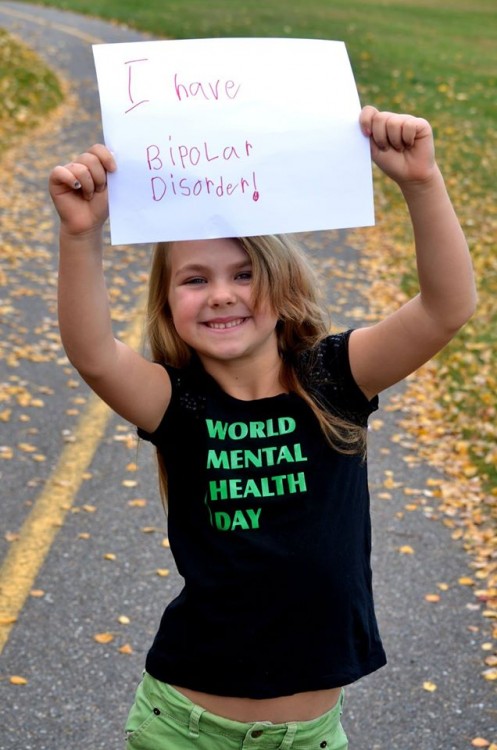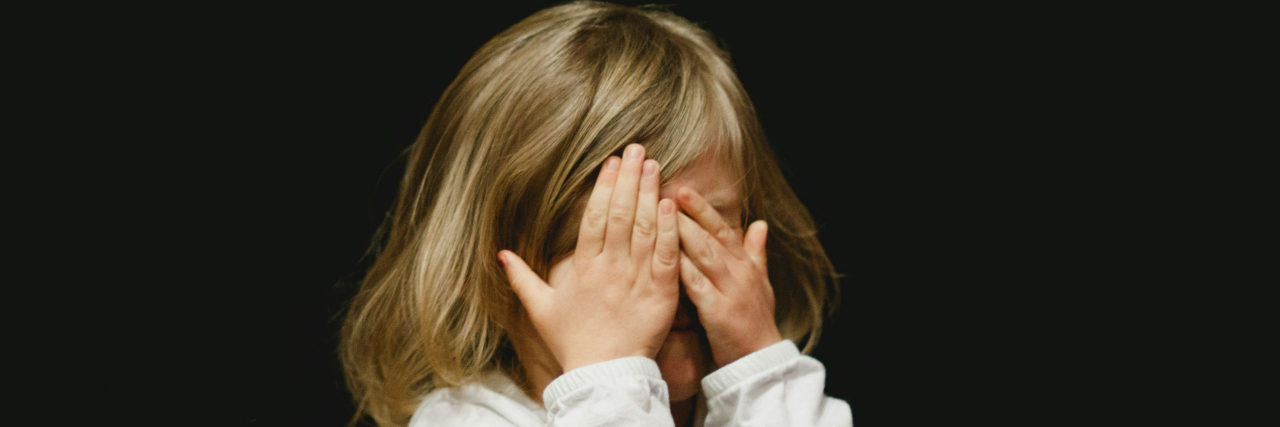I am the parent of a child with a severe mental illness, although it’s taken me several months to say that confidently and without my voice wavering.
• What is Bipolar disorder?
How did we end up with a diagnosis of a severe mental illness in such a young child? With increasingly difficult and extreme behavior at home, a psychiatric inpatient hospitalization was our only option for getting help for her. We needed to get some answers. It’s incredibly frustrating trying to help a child when you don’t know what’s wrong, especially when things are getting worse. The apex of her illness presented a few months ago when I found her in the backyard trying to take her own life. I can’t put into words how it feels to watch your 6-year-old trying to kill herself. It’s not something any parent is supposed to ever see. We needed help. After a very long hospitalization, we were finally discharged with a name for the illness she has been struggling with — my daughter has pediatric bipolar disorder.
After her discharge we planned a slow transition back into school. Monday morning started with her kicking me trying to get my attention as I brought into the building. I bent over to talk to her like the doctors taught me. First, validate her feelings: “I can see you’re feeling frustrated and trying to get my attention.” Next, try to instruct her on a more appropriate manner of getting my attention: “Do you think you could’ve said nicely, ‘Excuse me?’”
Her response? “Get the f*ck out of my face!”
Then she took off.
Oh yeah, F-bombing on the first day of second grade. That’s how we roll. And parents who had previously promised their undying devotion to supporting mental health awareness are suddenly silent, quickly ear-muffing their kids. The ones who don’t know she lives with a mental illness are looking at me (and her) like, “What did your kid just say?”
I completely get it. It’s easy to say you accept mental health issues until you actually see it. Sometimes, it’s messy. Sometimes, it involves F-bombs. It’s easy to look at her and just think she’s “one of those bad kids.”
But she only swears when she’s really feeling bad and is starting to lose control. I wanted to walk over to those parents and explain: “She has bipolar disorder. She gets to a point where she’s no longer in control of her words or her body. She was overstimulated and overwhelmed and feeling horrible inside. She’s not stable yet. It will get better soon. She’s not really like that, she’s lovely!” But would that make a difference?
It’s easy to share memes on Facebook say you support mental illnesses, but until you’re there, in the thick of it, you can’t understand what it’s like. Would you accept it if a mental illness incident happened in front of you? Would you feel compassionate, or would you judge? Does my daughter need to have a giant sticker on her forehead saying “Mental illness on board, please be kind”? Why can’t people just be kind anyways?
In all fairness, she also gets lots of hugs and lots of “you can do this!” when we’re out and about. She’s the poster child for mental illness. So cute, little, photogenic and usually smiling.
But it’s easy to be supportive of her mental illness when she’s smiling up at you. She looks the part of a functional 7-year-old, even when inside her head she’s struggling to keep it together. When that F-bomb deal-breaker echoed through the hall, if disapproval had a sound, that would have been it. But what if I told you she cried for hours earlier this week when she realized she would never be cured of bipolar disorder? About how she cried when a girl she knew who broke her leg got her cast off, because that wasn’t going to happen to her brain. About how after school on Monday she obsessively paced her room, muttering about how everyone was looking at her and everyone thought she was weird and “crazy.” Would that make you rethink the way you reacted to her mental illness-related outburst?
She’s not giving me a hard time, she’s having a hard time. And despite how fervently I want to scream out the realities of mental illness to create awareness and understanding, I feel like this type of illness will never truly be accepted until we start talking about what it really looks like. Despite how cute she is, she isn’t fully accepted for her mental illness, even now. And once the cuteness and littleness wears off, my daughter will just be another person with a sick brain who’s poorly understood and feeling alone. We need to start showing her now it’s OK to be who she is, F-bombs and all.


